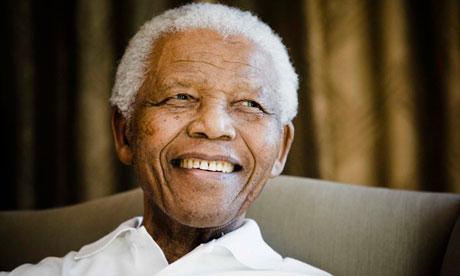When net migration falls, David Cameron can take the credit: for making Britain poor, hostile and pessimistic

In 2011, I interviewed a Polish barista in a Starbucks: it wasn’t about what had brought him to London, nobody was obsessed with that then. It was about what life was like in Krakow. But those two things are, necessarily, related: he told me how much a kilo of sugar was, and how long you’d have to wait for a bus. He said some things were better, but overall, life was quite hard. In fact, I was writing about feminism in Europe, and was just interviewing him to be polite, while I waited for his female colleague: but it stayed with me for the immediacy of the image. It tells you everything you need to know, about why people choose to live in prosperous nations over poor ones: how much of your life are you going to spend waiting for things?
The immigrant of David Cameron’s imagination, who roams the continent looking for the taxpayers who will most generously fund his idleness, doesn’t exist. The strongest the Labour party has been, in its alarmingly mild response to a wave of sudden, strident xenophobia, is to point out that the numbers are wrong.
Migrants are less likely to be on benefits, not more likely. The benefits they do claim tend to be in-work benefits, made necessary by a bizarre new status quo in which it’s possible for huge numbers of people to work full time and still need a cash benefit to pay rent. But it would be nice to hear someone in mainstream politics say that benefit tourism doesn’t exist because … who does that? What scheming fainéant uproots himself, slogs across Europe to forge a new life in an unfamiliar land, just to be work-shy on somebody’s sofa? It doesn’t make sense on a human level. How does the bold, optimistic person who took the risk become the lazy, withdrawn person who’s on the make?
The political stage is peopled with characters who wouldn’t get past a script meeting in Emmerdale: the woman who has an abortion at 28 weeks because she’s suddenly not that into the idea; the perfectly well person who would rather fake debilitating depression than get a job; the homo economicus who goes to a food bank even though he can afford food, because it’s free. The standard opposition is nerdy: we crunch the numbers and say, that only applies in 0.7% of cases, or we can only find 0.01 examples. A better retort would be: this characterisation is too senseless and implausible to warrant our attention. Go back to the drawing board, and rejoin the debate when you have concocted a bogeyman who at least has his arms and legs in the correct place.
All of us understand perfectly what would make this country look attractive to other EU nationals. Bus waiting times are a handy reckoner of the infrastructure, but they are also a metaphor for economic vigour – is this a place where the hardworking can thrive? Or is everyone constantly thwarted by circumstances they can’t control, which slow them down? Does this place look as though it would welcome strangers and present them with opportunities, or is it closed, narrow-minded, suspicious and racist? Do people earn enough not to worry about the price of sugar?
In fact, whatever Nigel Farage tells you, whatever hot anxiety spews out of Migration Watch, the government is doing a brilliant job at making the UK a place where nobody would ever want to live. While London remains the most prosperous city in Europe,nine out of the 10 poorest places in northern Europe are all in the UK, according to Inequality Briefing. Wages are low, housing costs are high – two-thirds of the people who found jobs last year were earning less than a living wage. Incomes at the bottom have dropped 10% in real terms over the past decade. Sugar prices have stayed pretty constant, but I don’t imagine that’s much consolation.
Far more off-putting than the grinding poverty, though, is the prevailing attitude of hatred and paranoia. Ukip wants to refashion the children of migrants as “hidden migrants”, even though this includes one of their two MPs and the offspring of their leader. Elderly racists are being dragged out of the conservative closet and dusted down to give their answering views on what kind of migration we should welcome.
Norman Tebbitt has suggested a new test – who did your grandfather fight for in the second world war? This is the man who argued that organ donors ought to be able to dictate, in the event of their death, that their kidneys are only given to white people. “Of course,” he wrote in 2000, “the race relations industry will come out beating its racist drum if a white person says their body may only be used to help others of their ethnic origin.” The only people making the case for immigration are doing so on the basis of their tax receipts and how much business depends upon them, which is code for “depends upon low wages”. Who would go to a country that talks about foreigners like that? What does it say about how they see their own people, that their politicians can make a business case but can’t make a human case?
The only thing maintaining the flow of migrants is that nobody reads the Daily Mail until they arrive, and only then do they realise how coarse and brutal our politics have become, how pessimistic. Why is a country that claims to be booming behaving like a country in the grip of a depression? Are its leaders lying about the boom, or failing to distribute its fruits? A bit of both, in proportions we can analyse at leisure. Meanwhile, when net migration starts to fall, as I have no doubt it will, David Cameron will be right to take the credit. He couldn’t cap the moths, so he put out the flame.




